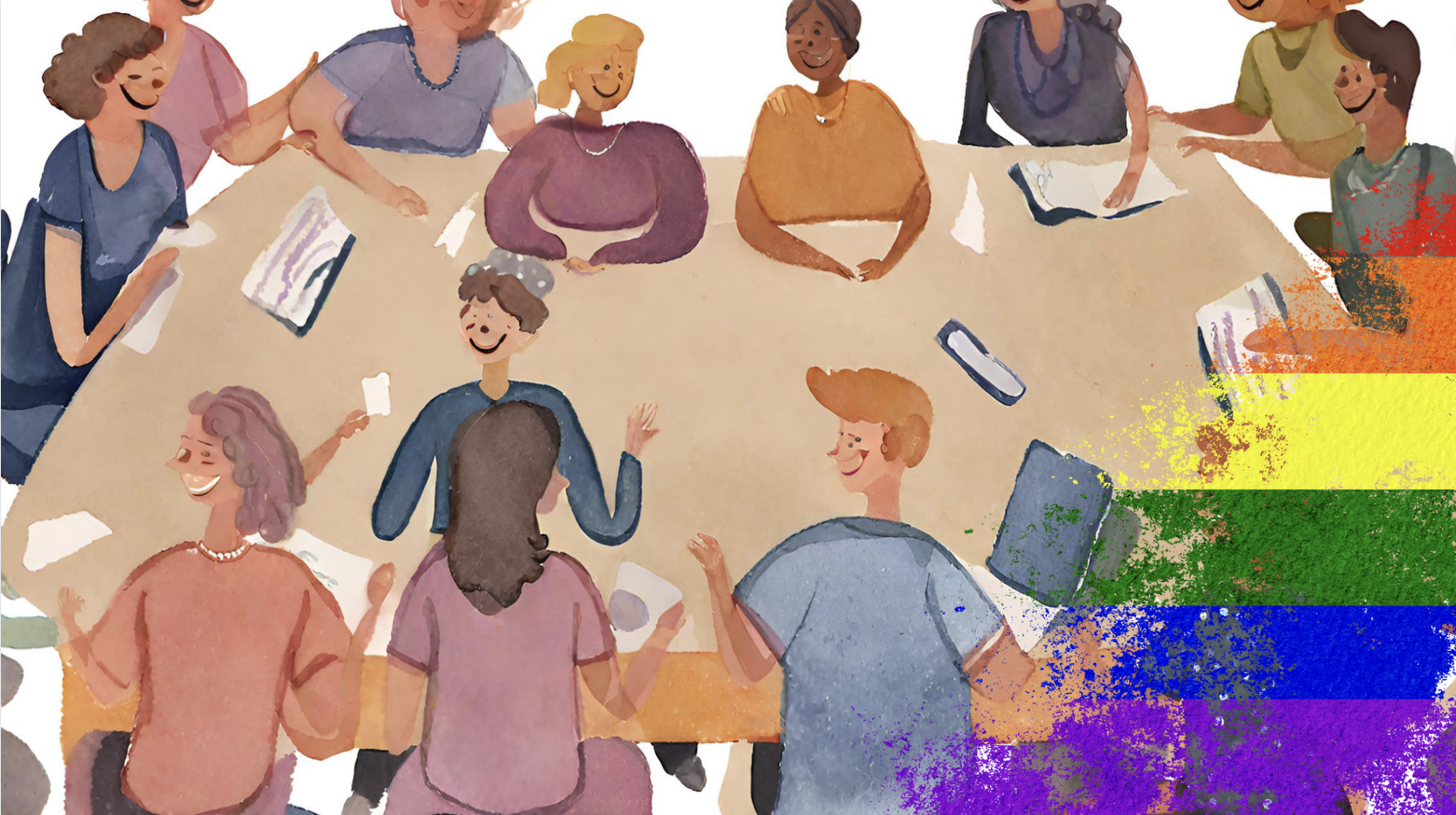Of the 64 avatars or manifestations of Lord Shiva one is ‘Ardhnarishwar’. is formed by ‘Ardh’ -Half, ‘Nari’ -woman and ‘Ishwar’ - God. Left part is Goddess Parvati and Right part is Lord Shiva. It stands for Lord Shiva is a half man and half woman form. Symbolising that the two are inseparable. Drawing from the mythology, if we should, we can also talk about how the human body itself is not just male and female. Each human organism can potentially become both or either sex. Only after testes are formed in the embryo the change in hormonal constitution leads to the suppression of the female genitalia. And this, like in all body functions, has a range. Leading to a spectrum of sexes, not just genders.
Hindu mythology has many other transsexual characters - Shikhandi, who became a man after being born as a girl Shikhandini to King Drupada in Mahabharat and drove Arjun’s chariot in the battle. Or Arjun taking the transexual form to teach dance during exile. Then there is Ila, who was born as a girl, but her parents Vivasvata and Shradha wanted a boy. They prayed and God turned her to a boy - Sudymma. But due to another curse was again turned into a woman. Ila later married Budha (Mercury), and in the end was again turned into a man by a boon from Lord Shiva.
The sex and gender spectrum is so well documented and accepted in the Hindu mythology and society was agnostic to the trans community. This idea though lost its lustre during the colonial rule and imposition of the colonial sensibilities. Today the trans and gay people suffer a lot of stigma and discrimination. Homosexuality was decriminalised only in 2018 and same sex marriage is still under debate.
Living under such conditions leads to a lot of strain on the mental health of people who do not conform to the now accepted definition of sexuality.
Understanding the Mental Health Landscape
- Social Stigma and Discrimination: Homosexuality was decriminalised in India in 2018 when the Supreme Court overturned Section 377. Despite this legal victory, many
- LGBTQ+ individuals continue to face discrimination, prejudice, and social stigma, which can significantly impact their mental well-being.
- Family Pressure: Traditional family structures and expectations in India often prioritise heterosexual marriages and offspring. Coming out as gay can lead to family rejection, isolation, and emotional distress.
- Bullying and Harassment: LGBTQ+ individuals, especially youth, may experience bullying and harassment in schools, colleges, or workplaces, leading to anxiety, depression, and other mental health issues.
- Lack of Representation: The lack of positive representation in media and society can make gay individuals feel invisible or marginalised, contributing to feelings of isolation and low self-esteem.
Positive Developments
- Legal Recognition: The decriminalisation of homosexuality was a significant milestone. It opened the door for legal recognition and protection of LGBTQ+ rights, providing a foundation for a more inclusive society.
- Supportive Organisations: Numerous LGBTQ+ advocacy organisations, mental health helplines, and support groups have emerged in India to provide guidance, counselling, and a sense of community for gay individuals.
- Educational Initiatives: Schools and universities are increasingly implementing LGBTQ+ awareness and sensitivity programs to combat bullying and discrimination.
Coping Strategies and Resources
- Seeking Professional Help: Gay individuals facing mental health challenges should not hesitate to seek professional help from LGBTQ+-friendly therapists and counsellors who can provide understanding and support.
- Building Support Networks: Creating a support network of friends, allies, or LGBTQ+ support groups can be instrumental in navigating mental health challenges.
- Self-acceptance: Learning to accept oneself and embrace one's identity is a crucial step in maintaining good mental health. Practising self-compassion and self-love can be transformative.
- Legal Knowledge: Understanding one's rights under Indian law and seeking legal protection when necessary is vital. Legal resources are available to address discrimination and harassment.
Conclusion
While India has come a long way in recognizing the rights of gay people, the journey toward full acceptance and inclusivity is ongoing. Mental health challenges faced by the LGBTQ+ community, especially gay individuals, are complex and deeply rooted in societal attitudes. By raising awareness, fostering education, and creating supportive environments, we can collectively work towards improving the mental health and overall well-being of gay individuals in India. Every step forward is a step toward a more equitable and inclusive society for all.
Chat with a Misters Expert on WhatsApp

